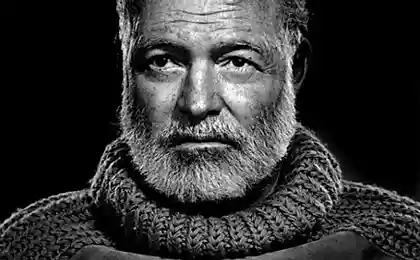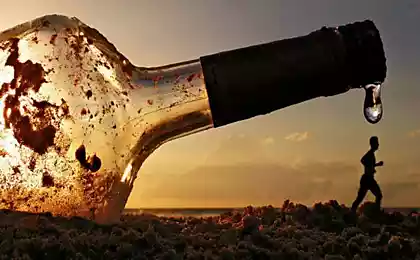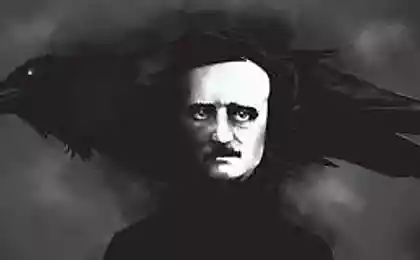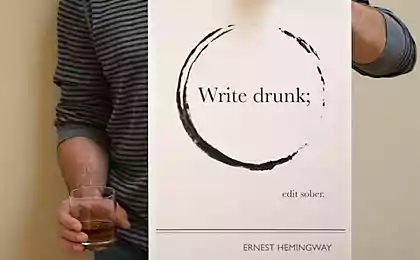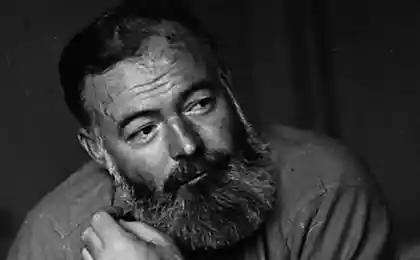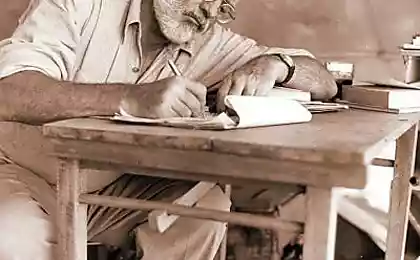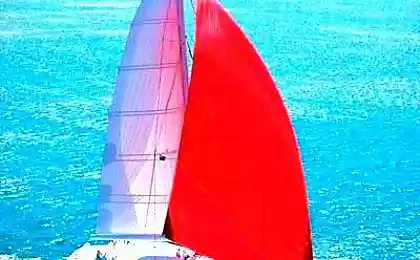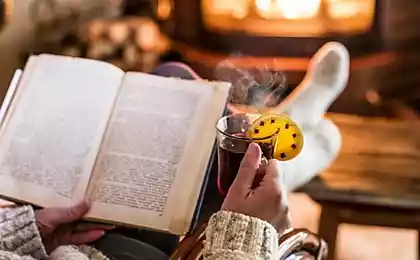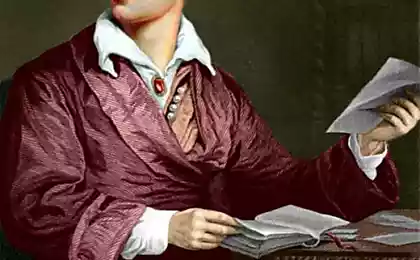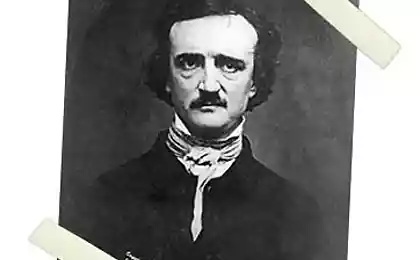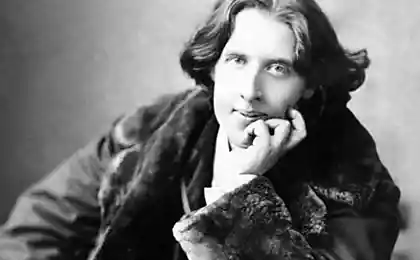488
Write drunk, edit sober— 8 things,which would have made Ernest Hemingway
1.Home education
Childhood Hemingway difficult to name a happy or tragic: in the fifteen months he caught his first fish in two and a half learned to shoot guns, grew up Thrifty and responsible boy, early became interested in literature, went to Church, received a reprimand for a minor infraction — in other words, received a strong Puritan upbringing, it is quite usual for representatives of the American middle class. Later in the adolescent years of Hemingway will find the origins of suicidal thoughts, take a closer look to his difficult relationship with his parents and make out in a boastful youth letters to the sister of the future talker — well, the great writer, of course.
2.Journalism, HEMINGUEJ-journalist made his debut with the Kansas city Star", where she performed the duties of a police reporter: running from the fire on robbery is an invaluable school for the novice writer. Then came the years of cooperation with the Chicago, canadian and Parisian press, in various positions and with the same disgust: lyrics life was not easy for him, and sit on the one place he didn't like. However, work in the newspaper was a Grand laboratory for artistic experimentation: here, Hemingway tried out "naked", purified from the stylistic beauty of a letter is equally suitable for the description of Boxing or the outcome of the Greek troops from Thrace, captured natural, "as in life", the dialogue and felt the famous "principle of the iceberg", which was worn till death.
3.The first world war
Part of Hemingway in the Italian campaigns of 1918 — the most controversial Chapter of his biography: no other event in his life, he is not "trimmed" with such care, varying details and writing juicy details. "I can't allow such a show without me," said eighteen-year-old Hemingway sister Marceline, signing up as a volunteer for the Red Cross. Service was not very entertaining: Shio, where he was sent, had nothing to do, and he asked in Mestre, where the car served the army shop. July 8, random mortar attack he was severely wounded in both legs, later from this incident Hemingway (for whom the war ended in the summer) will inflate the fable about how shot through the knee he was dragging the wounded, and after a few months fought side by side with Italian parts", arditti" under Bassano and no one bothered to expose him.
4.Sherwood Anderson's Story is considered to be the crowning genre of American literature, and Sherwood Anderson, along with TWAIN and O. Henry — this bears direct responsibility. For the generation of Hemingway, his restrained and laconic manner has become synonymous with new prose capable of overcoming an inert romanticism in the spirit of Krein and Beers. Anderson favored the young fan and even sent letters of recommendation to Gertrude Stein and Ezra Pound, who lived at that time in Paris. Hemingway did not repay the patron Saint of gratitude: despite the fact that his early texts (especially "My old man") otherwise, as imitative not called, he later spoke about the author of "Winesburg, Ohio" condescending " by the way, how about "vile woman" Stein.
5.Russian classics Like Faulkner, from year to year perekidyvaem "the Brothers Karamazov", he willingly confessed his love for Russian literature and have never denied its influence on their own creativity. Turgenev was in Russia in the status of venerable, but entirely unreadable classics, opened to him the art of compelling landscape and gave the name to the first novel ("spring water). Dostoevsky was the best conductor in the world "weakness and madness, Vice and Holiness" in the end, who is not the author of "Devils," to learn the moulding of heroes monomano. However, the close relationship of Hemingway felt with Tolstoy and Chekhov: before the "great Earl," he bowed, noting the workshops descriptions of the fighting, and the second was called "smart, knowledgeable physician and a good and simple writer, greatly superior to the famous American novelists.
6.Africa is the easiest way to explain Hemingway's passion for hunting sublimation, or another way of self-affirmation: such interpretations do it too often substituted, constantly flaunting his masculinity and threatening to beat down critics. However, the interest in the natural world was instilled in him since childhood: to four years, Hemingway was able to distinguish about 70 species of birds in the "Birds of America", and his mother grace was happy to notice that his son "likes and knows all the stones, trees, shells, birds and insects." In 1933, he matured to travel to Africa, where they finally met face-to-face with lions and gazelles. The black continent did not disappoint: the return released Hemingway Green hills of Africa" — a bizarre combination of notes of a naturalist and essays about literature, and then shot three masterpieces on the same material — "Horn of the bull", "the Snows of Kilimanjaro" and "Short-lived happiness of Francis Macomber".
7.The civil war in Spain "the Country after the homeland I love more than all countries in the world: it is painful to think with what feelings Hemingway went to Spain in 1937 in the company of Dutch filmmakers. The sympathy of the writer was clear: the hatred of the Nazis he had a still from the 1920s, a Soviet journalist Mikhail Koltsov so skillfully "handled" counterpart that Hemingway had a falling out with DOS Passos, who preferred not to close eyes to the crimes of the Communists. Here were written the play "the Fifth column" — probably one of the weakest of his stuff, praising the Republican counter-espionage, and collected material for the novel "For whom the bell tolls", which at first did not appeal to neither left nor right, and then will be the main fictional work about the Spanish civil war.
8.Alcohol
For many of the actions of Hemingway you can see the inconsistency, bordering on hysteria, but one credo author of "the Dangerous summer" was always: "Write drunk, edit sober." Given that work a classic preferred in the morning, most of the day he spent under the influence: drinking wine like water, he mocked Scott Fitzgerald, who was transported from a few bottles of white of Macon, and after the doctors diagnosed him with cirrhosis of the liver, avoiding alcohol in the best case a couple of days. Researchers argue about the role of alcohol in his senile and, according to declassified FBI files, are not actually unfounded paranoia, but agree in the main: no mojitos and other liquid stimulants absorbed by Hemingway in enormous quantities, he could have had more.
Source: theoryandpractice.ru
Childhood Hemingway difficult to name a happy or tragic: in the fifteen months he caught his first fish in two and a half learned to shoot guns, grew up Thrifty and responsible boy, early became interested in literature, went to Church, received a reprimand for a minor infraction — in other words, received a strong Puritan upbringing, it is quite usual for representatives of the American middle class. Later in the adolescent years of Hemingway will find the origins of suicidal thoughts, take a closer look to his difficult relationship with his parents and make out in a boastful youth letters to the sister of the future talker — well, the great writer, of course.
2.Journalism, HEMINGUEJ-journalist made his debut with the Kansas city Star", where she performed the duties of a police reporter: running from the fire on robbery is an invaluable school for the novice writer. Then came the years of cooperation with the Chicago, canadian and Parisian press, in various positions and with the same disgust: lyrics life was not easy for him, and sit on the one place he didn't like. However, work in the newspaper was a Grand laboratory for artistic experimentation: here, Hemingway tried out "naked", purified from the stylistic beauty of a letter is equally suitable for the description of Boxing or the outcome of the Greek troops from Thrace, captured natural, "as in life", the dialogue and felt the famous "principle of the iceberg", which was worn till death.
3.The first world war
Part of Hemingway in the Italian campaigns of 1918 — the most controversial Chapter of his biography: no other event in his life, he is not "trimmed" with such care, varying details and writing juicy details. "I can't allow such a show without me," said eighteen-year-old Hemingway sister Marceline, signing up as a volunteer for the Red Cross. Service was not very entertaining: Shio, where he was sent, had nothing to do, and he asked in Mestre, where the car served the army shop. July 8, random mortar attack he was severely wounded in both legs, later from this incident Hemingway (for whom the war ended in the summer) will inflate the fable about how shot through the knee he was dragging the wounded, and after a few months fought side by side with Italian parts", arditti" under Bassano and no one bothered to expose him.
4.Sherwood Anderson's Story is considered to be the crowning genre of American literature, and Sherwood Anderson, along with TWAIN and O. Henry — this bears direct responsibility. For the generation of Hemingway, his restrained and laconic manner has become synonymous with new prose capable of overcoming an inert romanticism in the spirit of Krein and Beers. Anderson favored the young fan and even sent letters of recommendation to Gertrude Stein and Ezra Pound, who lived at that time in Paris. Hemingway did not repay the patron Saint of gratitude: despite the fact that his early texts (especially "My old man") otherwise, as imitative not called, he later spoke about the author of "Winesburg, Ohio" condescending " by the way, how about "vile woman" Stein.
5.Russian classics Like Faulkner, from year to year perekidyvaem "the Brothers Karamazov", he willingly confessed his love for Russian literature and have never denied its influence on their own creativity. Turgenev was in Russia in the status of venerable, but entirely unreadable classics, opened to him the art of compelling landscape and gave the name to the first novel ("spring water). Dostoevsky was the best conductor in the world "weakness and madness, Vice and Holiness" in the end, who is not the author of "Devils," to learn the moulding of heroes monomano. However, the close relationship of Hemingway felt with Tolstoy and Chekhov: before the "great Earl," he bowed, noting the workshops descriptions of the fighting, and the second was called "smart, knowledgeable physician and a good and simple writer, greatly superior to the famous American novelists.
6.Africa is the easiest way to explain Hemingway's passion for hunting sublimation, or another way of self-affirmation: such interpretations do it too often substituted, constantly flaunting his masculinity and threatening to beat down critics. However, the interest in the natural world was instilled in him since childhood: to four years, Hemingway was able to distinguish about 70 species of birds in the "Birds of America", and his mother grace was happy to notice that his son "likes and knows all the stones, trees, shells, birds and insects." In 1933, he matured to travel to Africa, where they finally met face-to-face with lions and gazelles. The black continent did not disappoint: the return released Hemingway Green hills of Africa" — a bizarre combination of notes of a naturalist and essays about literature, and then shot three masterpieces on the same material — "Horn of the bull", "the Snows of Kilimanjaro" and "Short-lived happiness of Francis Macomber".
7.The civil war in Spain "the Country after the homeland I love more than all countries in the world: it is painful to think with what feelings Hemingway went to Spain in 1937 in the company of Dutch filmmakers. The sympathy of the writer was clear: the hatred of the Nazis he had a still from the 1920s, a Soviet journalist Mikhail Koltsov so skillfully "handled" counterpart that Hemingway had a falling out with DOS Passos, who preferred not to close eyes to the crimes of the Communists. Here were written the play "the Fifth column" — probably one of the weakest of his stuff, praising the Republican counter-espionage, and collected material for the novel "For whom the bell tolls", which at first did not appeal to neither left nor right, and then will be the main fictional work about the Spanish civil war.
8.Alcohol
For many of the actions of Hemingway you can see the inconsistency, bordering on hysteria, but one credo author of "the Dangerous summer" was always: "Write drunk, edit sober." Given that work a classic preferred in the morning, most of the day he spent under the influence: drinking wine like water, he mocked Scott Fitzgerald, who was transported from a few bottles of white of Macon, and after the doctors diagnosed him with cirrhosis of the liver, avoiding alcohol in the best case a couple of days. Researchers argue about the role of alcohol in his senile and, according to declassified FBI files, are not actually unfounded paranoia, but agree in the main: no mojitos and other liquid stimulants absorbed by Hemingway in enormous quantities, he could have had more.
Source: theoryandpractice.ru
